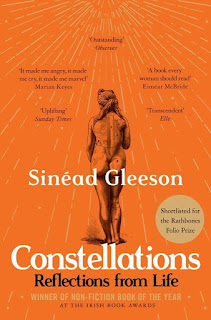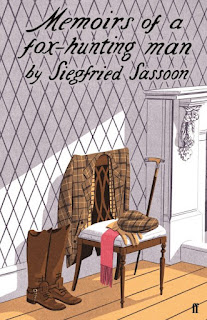Stars in the Night
Sinéad Gleeson is best known for her editorial work. Two of her collections on women writers from the north and south of Ireland have won Irish Book Awards. Her forthcoming collection, The Art of the Glimpse, collates one hundred Irish short stories, as it sets out to ambitiously update the current literary canon. What her work has done for contemporary Irish literature is admirable.
Gleeson is also a writer of essays. Constellations: Reflections from Life is her first collection of memoir-based writings, which focus on ways of seeing the female body. They draw on personal stories, relating them to themes of Irish womanhood. It is a well-needed meditation on a historically neglected topic.
Using Barthean terminology, Gleeson delves into a variety of body-related subjects, from Catholic cults of healing to the relation between female hair and gender. Each essay draws on Gleeson’s own experiences, as the reader winds through intricately laid paths leading onto wider-level discussions of bigger themes. Her body provides a focal point – an entryway – into deeper territory. One essay relays a story from her teenage years, when Gleeson shaved her head to a number zero cut – simply because she wanted to. The reactions she received told her everything: neighbours and friends freaked out, whilst her peers were quick to make assumptions, ‘from her sexuality and availability to her personality type and demeanour’ (26). Her hair became a signifier and symbol – something linked to wider representations of bald-headed women.
In this book, the ups accompany the downs. Constellations is a tightly packed contemplation of how our lives balance out moments of fierce joy with instances of pain. When Gleeson recounts her many bouts of illness she also reflects on the deeper implications of physical inconvenience. The Canadian film director David Cronenberg once remarked that the human body comes first, that corporeal experience anchors our perceptions of reality. Gleeson rejects this notion. ‘The body is an afterthought,’ her book begins tersely; it is ‘routinely taken for granted’, only noticeable when we fall ill – when we experience pleasure or pain. We often forget our bodies and their complexities. They are ignorable until illness forces us to remember the heart’s steady rhythms, the constant movement of our blood. In short, when we begin to notice that we are all mortal.
Lifelong experiences with bone problems has made Gleeson a perennial patient, who is always visiting the hospital. Her accounts include discussions on medical discourse. Doctor-patient relationships are sometimes problematic, as doctors and nurses are often under tremendous amounts of stress. With no immediate signs of rest or relief, they deal with patients heavily. Gleeson is careful to note that this is not always the case. Nevertheless, the directions of medical specialists often come with a dose of patronising language, tones of passive aggressiveness. ‘The doctor-patient relationship [has] its own imbalances [. . .] the sense of powerlessness in the face of instruction: lie down, bend forward, walk for me.’ (7) When we are patients, our bodies lack autonomy. We are no longer people, but medicalised versions of the self (114).
Gleeson soon makes the case for art in the face of sickness. The artist, she argues, counters medicalised views of the body. To create is a way of asserting autonomy – a renewed claim to our own skin. She uses the example of Mexican painter Frida Kahlo. The story of Kahlo’s constant working around a problematic body demonstrates how the artist can act as a reclaimer, the Robin Hood of a deprived self. Following a bus accident, Kahlo suffered constantly from spinal problems. Her obsession with painting self-portraits were one way of refashioning her illness into a positive livelihood.
Constellations follows Kahlo's example, creating a well-crafted work that confronts the body's many problems with an air of artful confidence. Whenever our bodies seem to fail us, Gleeson's words will be there to guide us.
Source:
Constellations: Reflections on Life. By Sinéad Gleeson. Picador: London, 2019. 978-1-5098-9273-0.
 |


Comments
Post a Comment